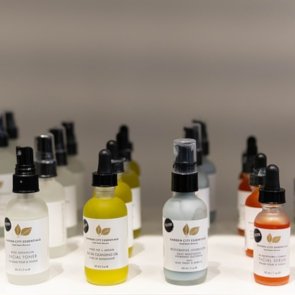Pros and Cons of Using Salicylic Acid for Acne-Prone Skin
 Salicylic acid is one of the most commonly used ingredients in products for acne-prone skin. It’s even used as a medication to treat warts, psoriasis, ringworm, seborrheic dermatitis, corns, calluses, and some other skin conditions. If you’re thinking about using salicylic acid for treating acne, you need to know about its pros and cons.
Salicylic acid is one of the most commonly used ingredients in products for acne-prone skin. It’s even used as a medication to treat warts, psoriasis, ringworm, seborrheic dermatitis, corns, calluses, and some other skin conditions. If you’re thinking about using salicylic acid for treating acne, you need to know about its pros and cons.Salicylic acid is the best known beta hydroxy acid (BHA). It is extensively used in medicine and cosmetic industry due to its exfoliating, bactericidal, and antiseptic properties. Salicylic acid helps remove the outer layer of the skin, inhibits the growth of pathogenic bacteria on the skin surface, and combats inflammation. The World Health Organization has even included it on the Model List of Essential Medicines, comprising the most important medications that a basic health system needs.
Like other hydroxy acids, salicylic acid is a key ingredient in chemical peels and other skincare products for the treatment of acne. Although effective, it needs to be used with caution because even the most effective ingredients have their drawbacks. What are the pros and cons of salicylic acid?
Salicylic Acid: Pros
As we’ve already mentioned above, salicylic acid has a 3-in-1 effect: it exfoliates the skin, decreases inflammation, and kills harmful microbes that cause acne breakouts. By the way, the anti-inflammatory properties of salicylic acid are not surprising at all because it’s closely related to another anti-inflammatory compound, acetylsalicylic acid, commonly known as aspirin.
Salicylic acid is especially great for taking care of oily skin because of its ability to break down fats and lipids. It helps get rid of excess skin oil and balances the skin. In addition, this acid is capable of penetrating into the pores and unclogging them, which helps prevent blackheads and whiteheads. By removing impurities, salicylic acid also minimizes the appearance of pores.
When used in low concentrations, salicylic acid is suitable for all skin types. It soothes irritated skin, reduces redness and pigmentation, accelerates the healing of acne and blemishes, and doesn’t increase the skin’s photosensitivity.
Salicylic Acid: Cons
Of course, nothing is perfect, so salicylic acid does have its drawbacks. They are quite minor compared to the benefits, but you should be aware of them.
First and foremost, salicylic acid can cause allergic reactions in people hypersensitive to salicylic acid and related compounds. For example, if you’re allergic to aspirin, you can’t use salicylic acid to treat acne.
Due to its ability to penetrate into the skin, salicylic acid can cause moderate chemical burns at high concentrations. Over-the-counter topical preparations expected to be left on the face must not contain more than 2% of salicylic acid, and products that are expected to be rinsed off must contain no more than 3% of salicylic acid. Products that can be used under prescription are allowed to have a higher concentration.
Finally, salicylic acid may case irritation and discomfort if you have extremely dry skin, if you over-exfoliate the skin, or if you combine too many active compounds in your skincare routine.
So basically, salicylic acid is an effective anti-acne ingredient that is safe to use as long as you take certain precautions. First of all, you need to do a sensitivity test to make sure you aren’t allergic to salicylic acid and related compounds. If you’ve never used chemical peels or other acid-based cosmetic products, start with the most gentle product that has the lowest possible concentration of salicylic acid, and build up to higher concentrations.
When using products for acne-prone skin that contain salicylic acid, pay attention to your skin for negative side effects like redness, peeling, flaking, irritation, dryness, or tightness. If you experience any discomfort during or after using such products, switch to a lower concentration or take a break from salicylic acid altogether.